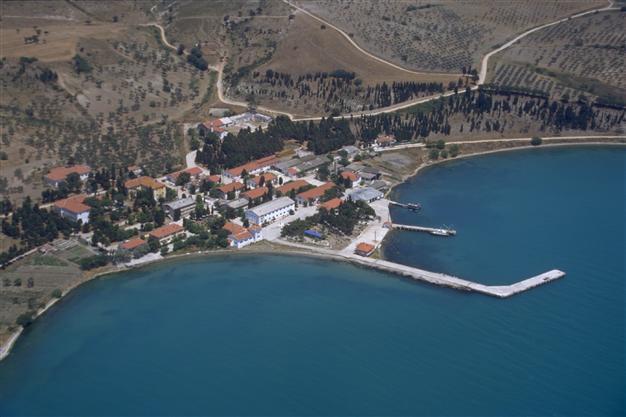Jailed PKK leader Öcalan's life sentence a ‘rights violation,’ ECHR rules
ISTANBUL/Hürriyet

Hürriyet Photo
The European Court of Human Rights (ECHR) has ruled that Turkey partly violated the European Convention on Human Rights, following a complaint by Abdullah Öcalan, the imprisoned leader of the outlawed Kurdistan Workers’ Party (PKK).In particular, the court called for Ankara to create mechanisms to allow the possibility of conditional release for prisoners with “aggravated” life sentences, or even to abolish life sentences completely.
Öcalan had filed a complaint to the ECHR about the conditions of his detention in İmralı Island prison off Istanbul, where he is serving a life sentence for treason.
In its judgment, which is not final, the ECHR held by four votes to three that there had been a violation of Article 3 (prohibition of inhuman or degrading treatment) of the European Convention on Human Rights as to the conditions of Öcalan’s detention up to Nov. 17, 2009. Öcalan was in solitary confinement in İmralı Island prison from February 1999 to November 2009.
However, by six votes to one, the court ruled that there had been no violation of Article 3 as regards the conditions of his detention in the period after Nov. 17, 2009.
The court unanimously held that there had been a violation of Article 3 as regards Öcalan’s sentence to life imprisonment without any possibility of conditional release. By four votes to three it ruled that there had been no violation of Article 8 (right to respect for private and family life).
It is also ruled unanimously that there had been no violation of Article 7 (no punishment without law).
‘Ye who enter, abandon all hope’
In the verdict, the ECHR quoted Dante Alighieri’s famous line, “Ye who enter, abandon all hope,” while warning Ankara that “Prisons should not turn into gates to Hell.”
“Mr Öcalan’s detention presented the Turkish authorities with ‘extraordinary difficulties’: as leader of a wide-scale separatist movement, he was regarded by a considerable portion of the Turkish population as the country’s most dangerous terrorist,” it stated.
Reiterating that the authorities were “entitled to impose ‘legitimate restrictions’ on prisoners convicted of terrorist activities in so far as they were strictly necessary to protect society against violence,” the court argued that Öcalan’s social isolation had not been total but partial and relative prior to Nov. 17, 2009. “Neither could he be regarded since that date as having been held in serious social isolation,” the court added.
For the period after Nov. 17, 2009, the court found that considering the transfer of other prisoners to Imralı Island, the significant improvement in his communication and activities with the other inmates, the increase in frequency of visits, and the provision of facilities that had alleviated the effects of his relative social isolation (telephone calls since 2010 and a television set in his cell since 2012), the conditions of detention imposed on Öcalan had not reached “the minimum threshold of seriousness” required to constitute “inhumane treatment.” Therefore, there had not been a violation of Article 3.
‘Irreducible’ life sentence imposed
The key part of the verdict relates to the sentencing of Öcalan to life imprisonment without any prospect of release, defined in Turkish law as an “aggravated” sentence. Although the court reiterated that the imposition of a sentence of life imprisonment on an adult offender was not in itself prohibited by or incompatible with Article 3, it stressed that the sentence shouldn’t be “irreducible,” which means that a life prisoner could be said to have a prospect of release.
In the absence of any mechanism that would allow the review, after a certain minimum term, of a life sentence imposed for the crimes, Öcalan’s sentence is described by the court as “irreducible,” and therefore a violation of Article 3.
However, an improvement in the complainant’s prison conditions will not be enough, as Turkey should also create mechanisms of conditional release for all convicts imprisoned in such circumstances, or even abolish life sentences completely to be “a model for humanity.”
The ECHR argued that its ruling was adequate to compensate for the harm done, recalling that the complainant did not file a request for any form of compensation. The court held that Turkey was to pay Öcalan 25,000 euros in respect of costs and expenses.
















